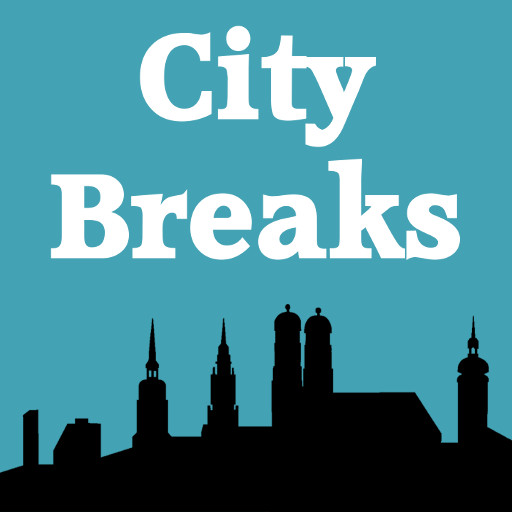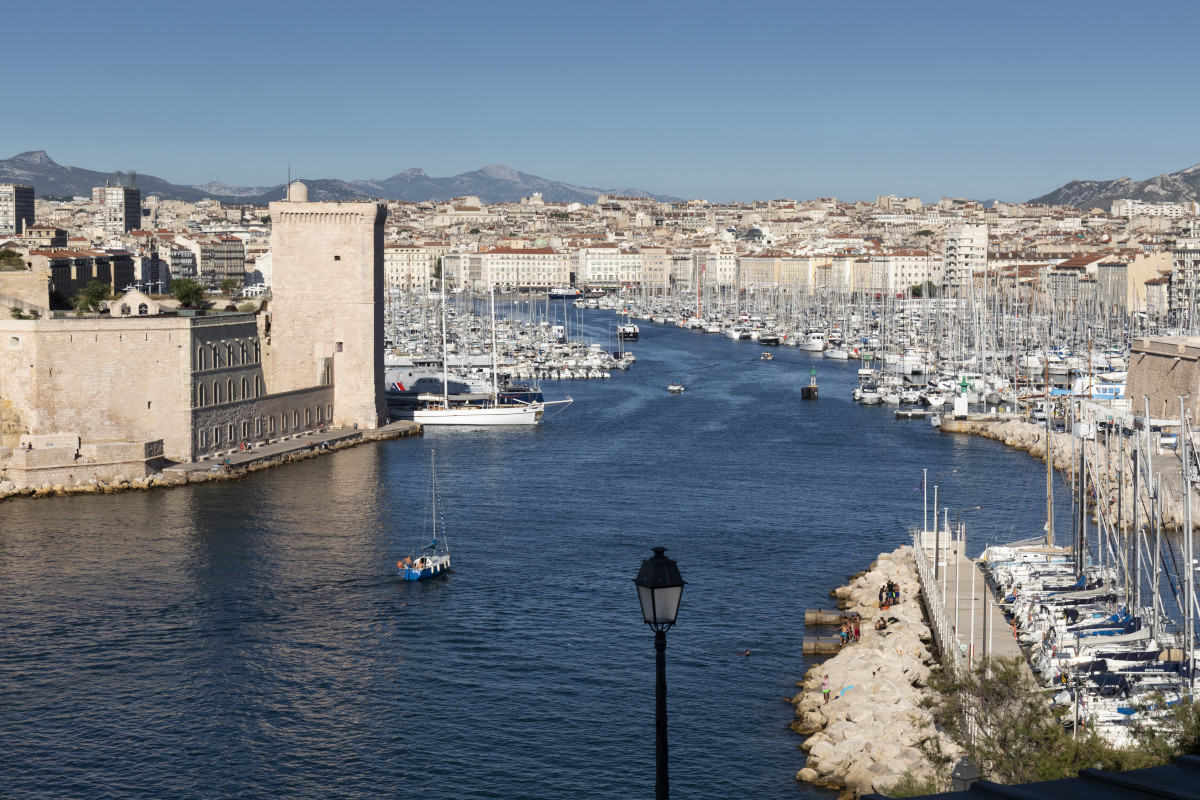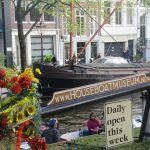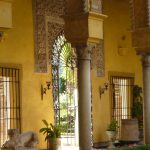Bienvenue à Marseille: welcome to Marseille. This introduction brings you information to help you get your bearings and pick up the basic facts which underpin everything. Handy! See below for reading ideas and useful links.
This sunny Provencal city is a real mix: French culture overlaid with so many influences from across the globe. There’s a picturesque harbour and stunning coastline, but also an element of ‘grit’ which makes it the natural home of Marseille Noir crime fiction. Visit to soak up 27 centuries of history since it was founded by the Greeks, to marvel at state-of-the-art new museums and a classic Musée des Beaux Arts, to savour bouillabaisse and couscous. Really, there’s something for all tastes!
Get Your Bearings
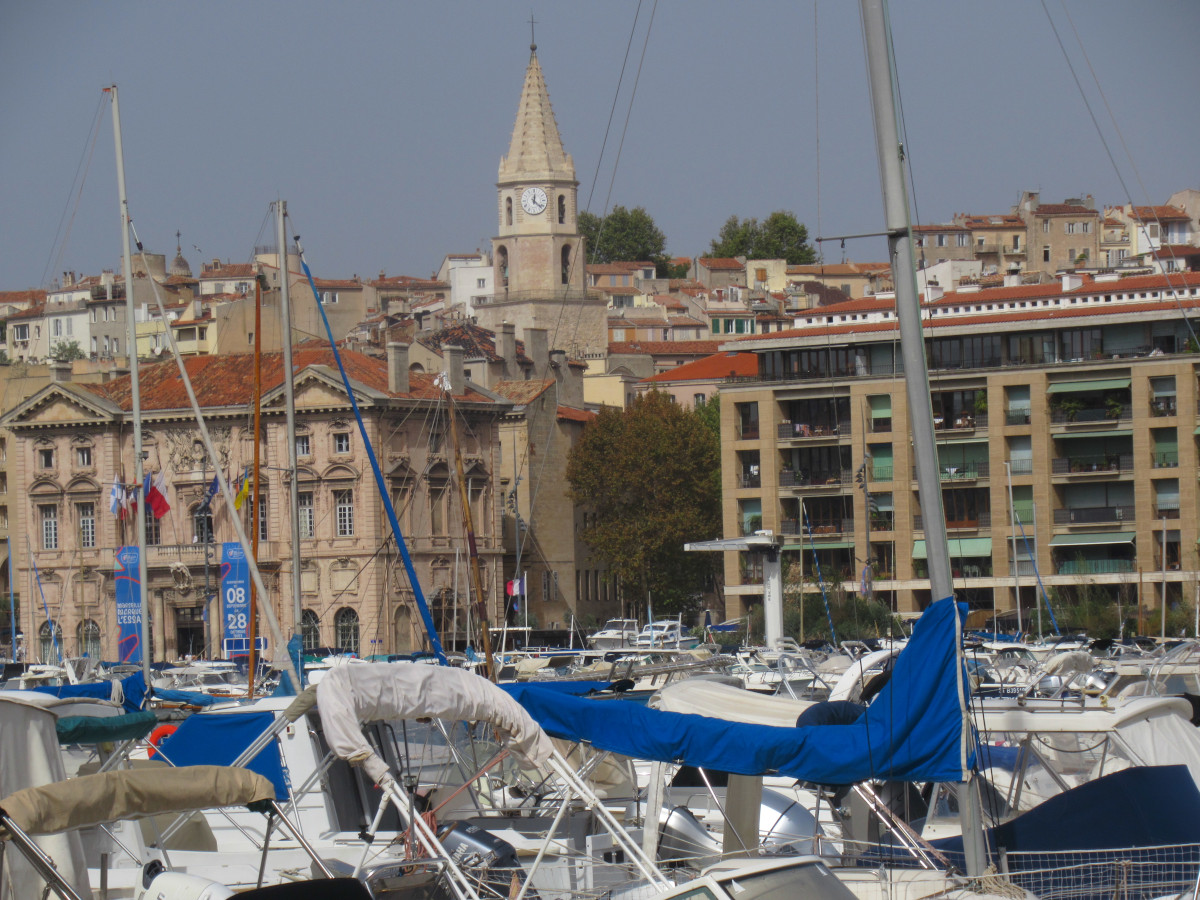
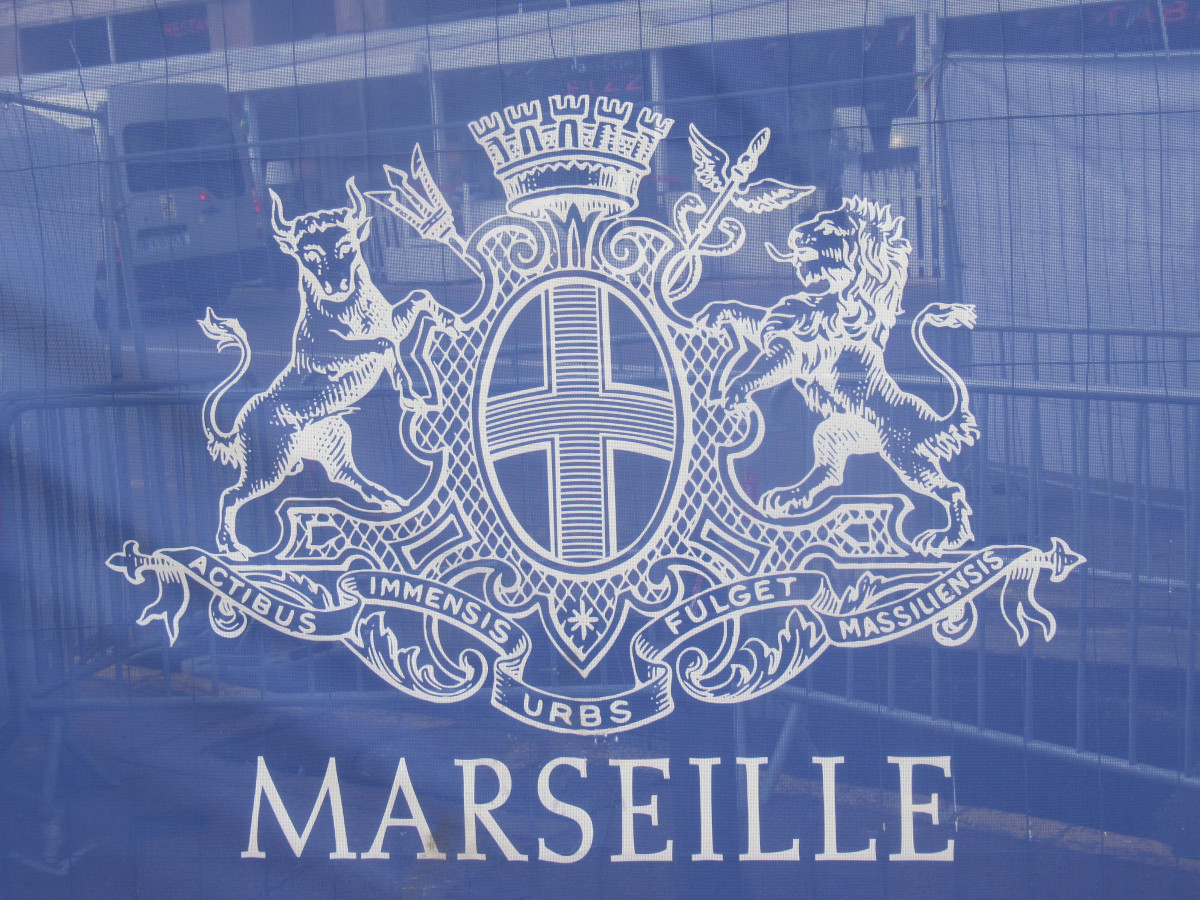
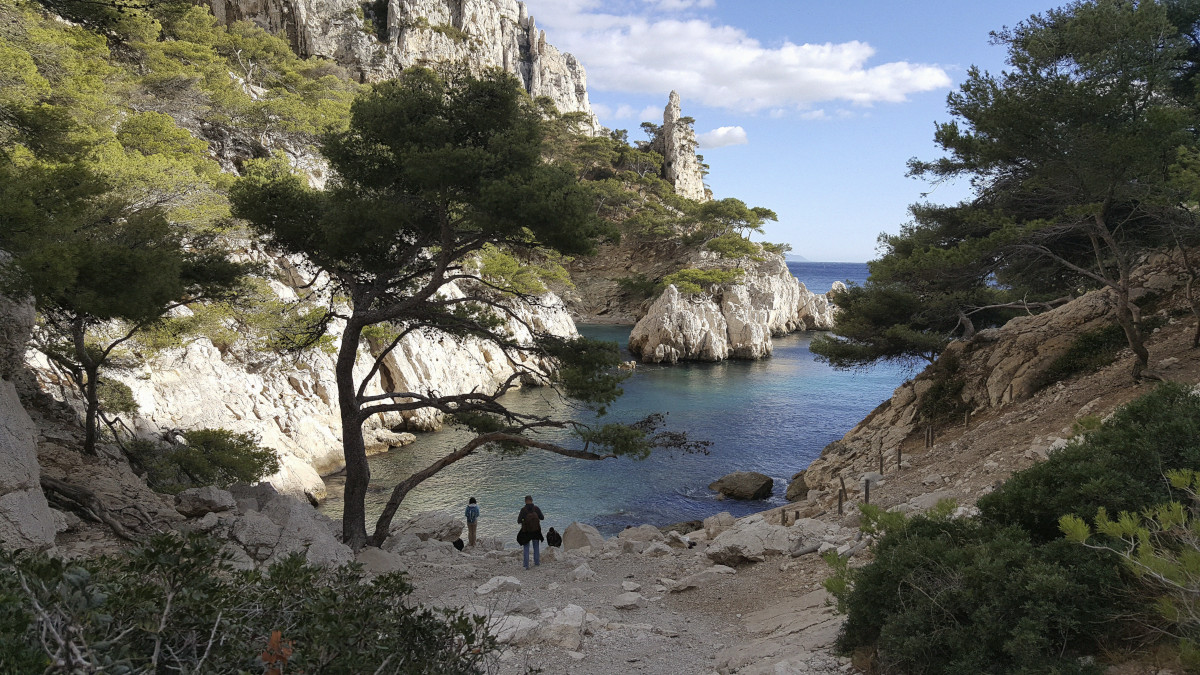
Marseille is on the Mediterranean coast, some 400 miles south of Paris, sitting between the French Riviera and the Camargue. It’s the capital of the Bouches-du-Rhône département and also of the region of Provence-Alpes-Côte d’Azur and has a population of about 1.6 million. It’s in natural harbour, surrounded by limestone hillsides and the coastline is known for its small rocky inlets, the calanques, which are inaccessible to cars, but can be visited on foot or by boat, making the area a paradise for walkers and divers. There are numerous nearby islands, such as the Frioul archipelago, including the island on which the notorious former prison, the Château d’If stands.
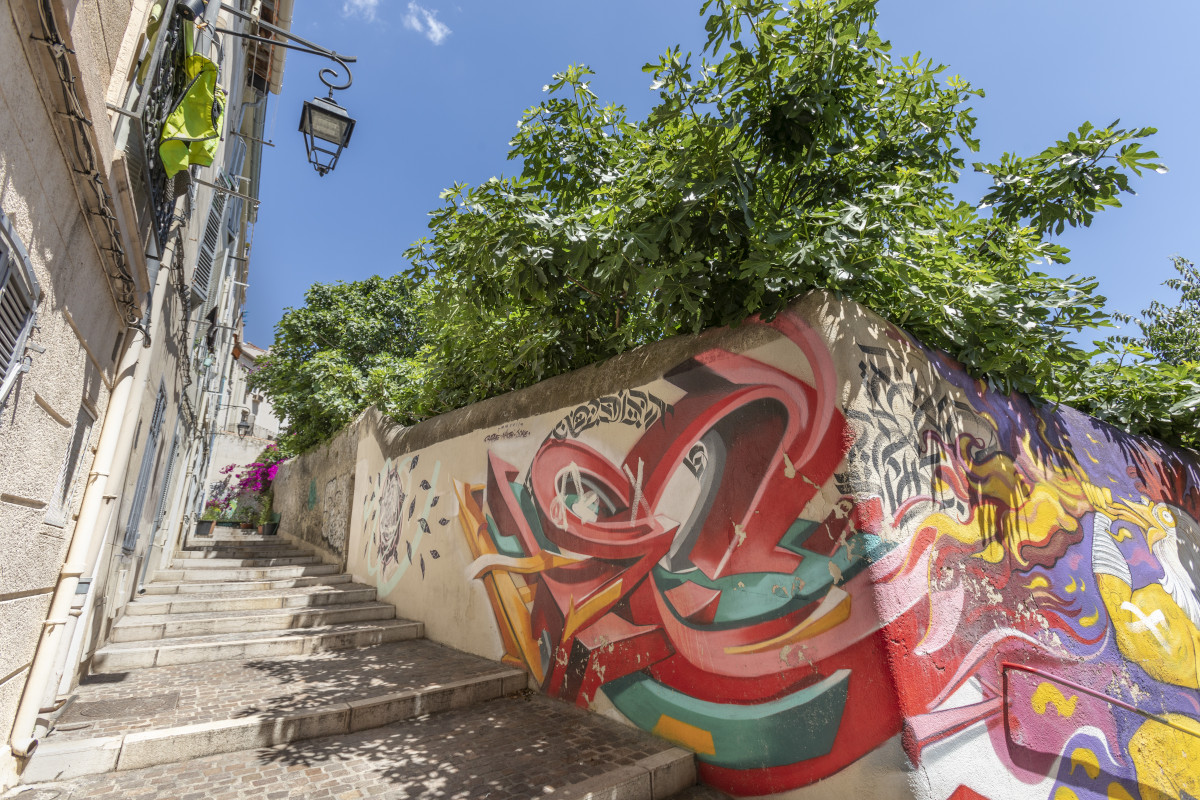
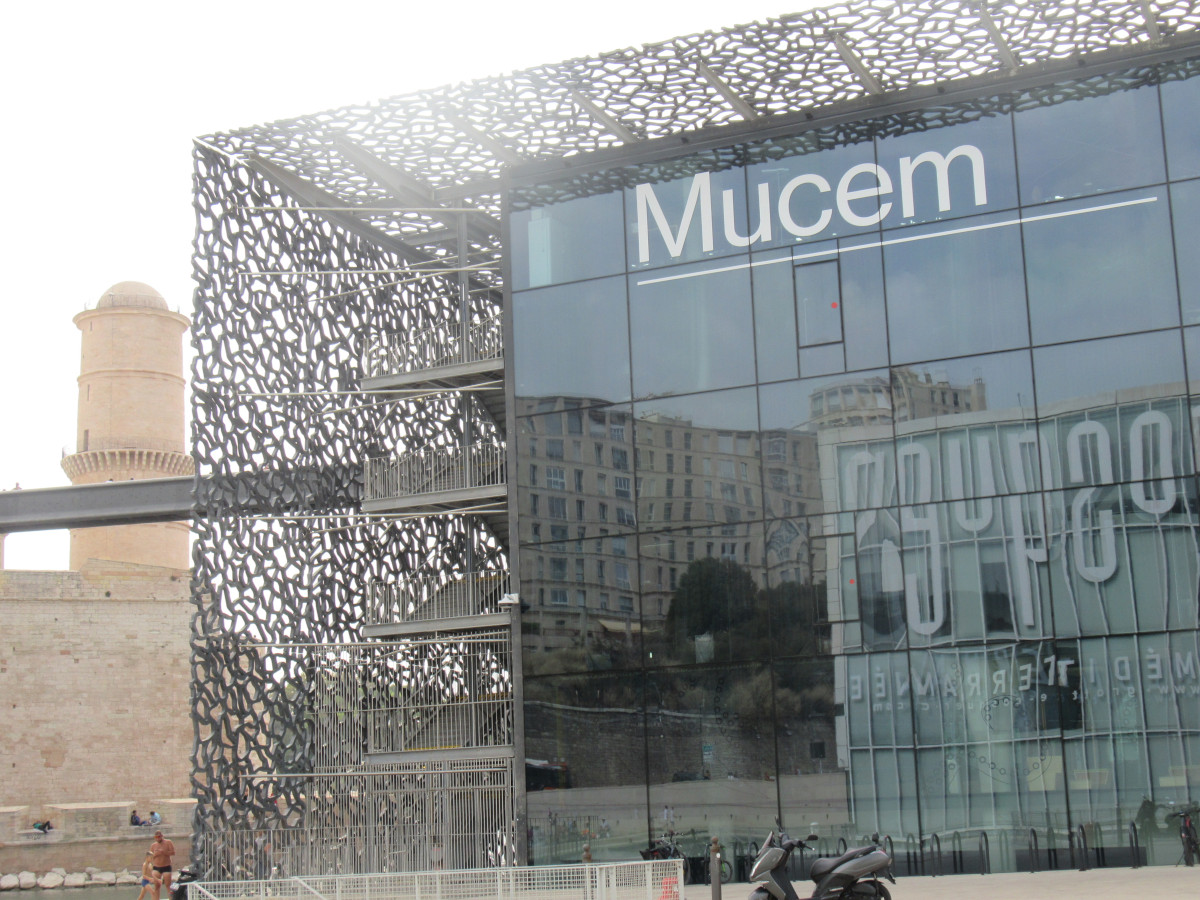
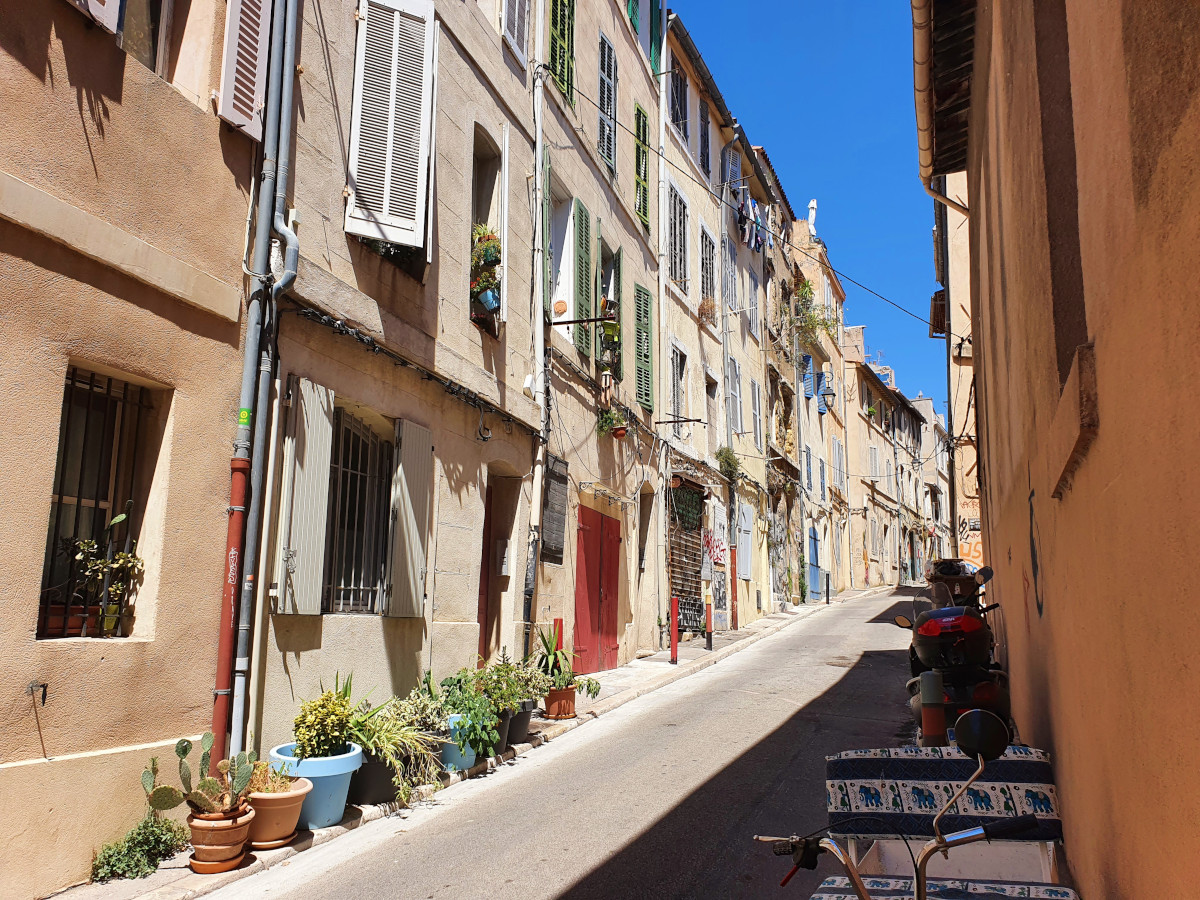
The harbour is the city’s focal point, notable for its entrance guarded by two forts, St Jean and St Nicolas, and for its quayside fish market. High up on the southern side, the cathedral of Notre Dame de la Garde overlooks the port and to the north is the hilly district of Le Panier with its steep streets and steps and abundance of street art. Leading back from the harbour is the wide avenue called La Canebière, where the tourist office is. Round a corner just to the south of the harbour is the city’s main dockland area, recently redeveloped and home to two major new museums, the MUCEM and the Cosquer Méditerrannée and a selection of shopping and leisure facilities.
a little history
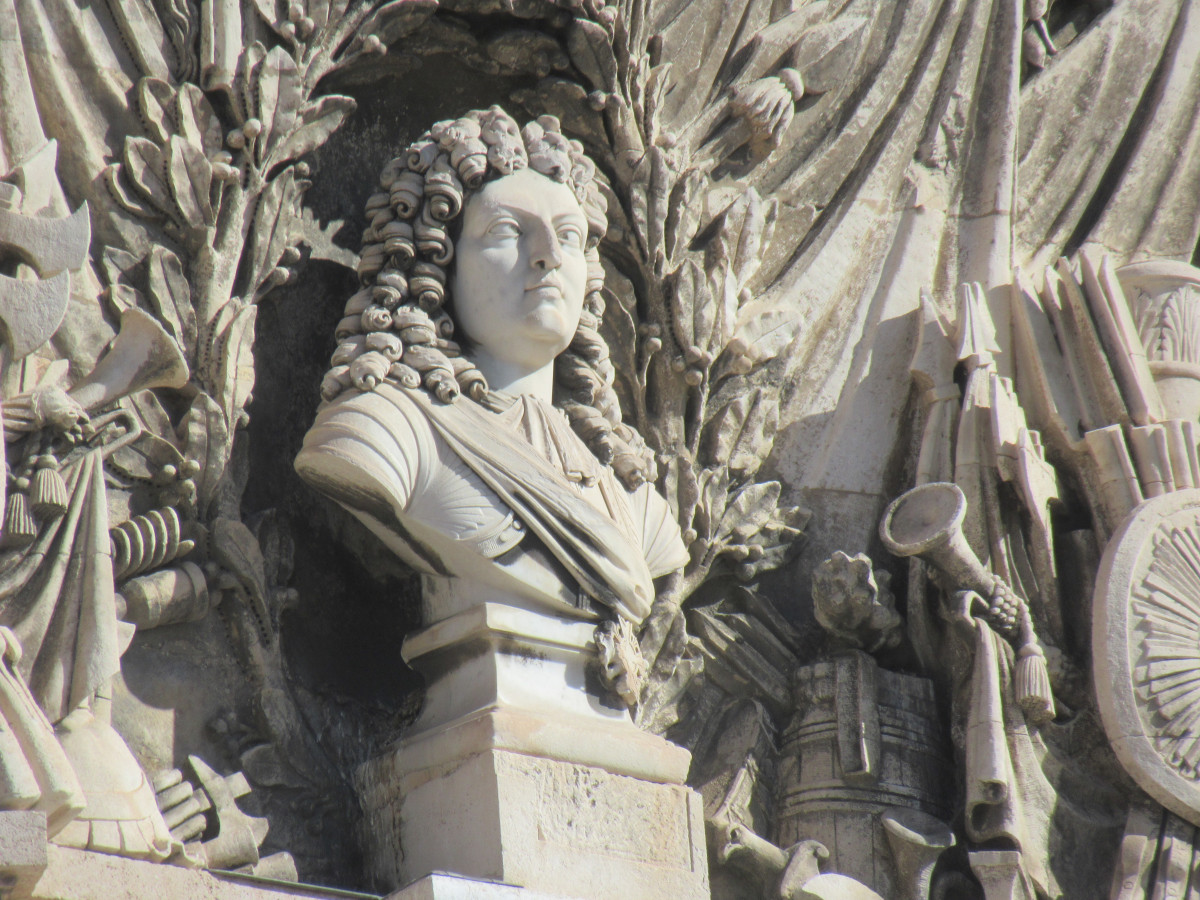
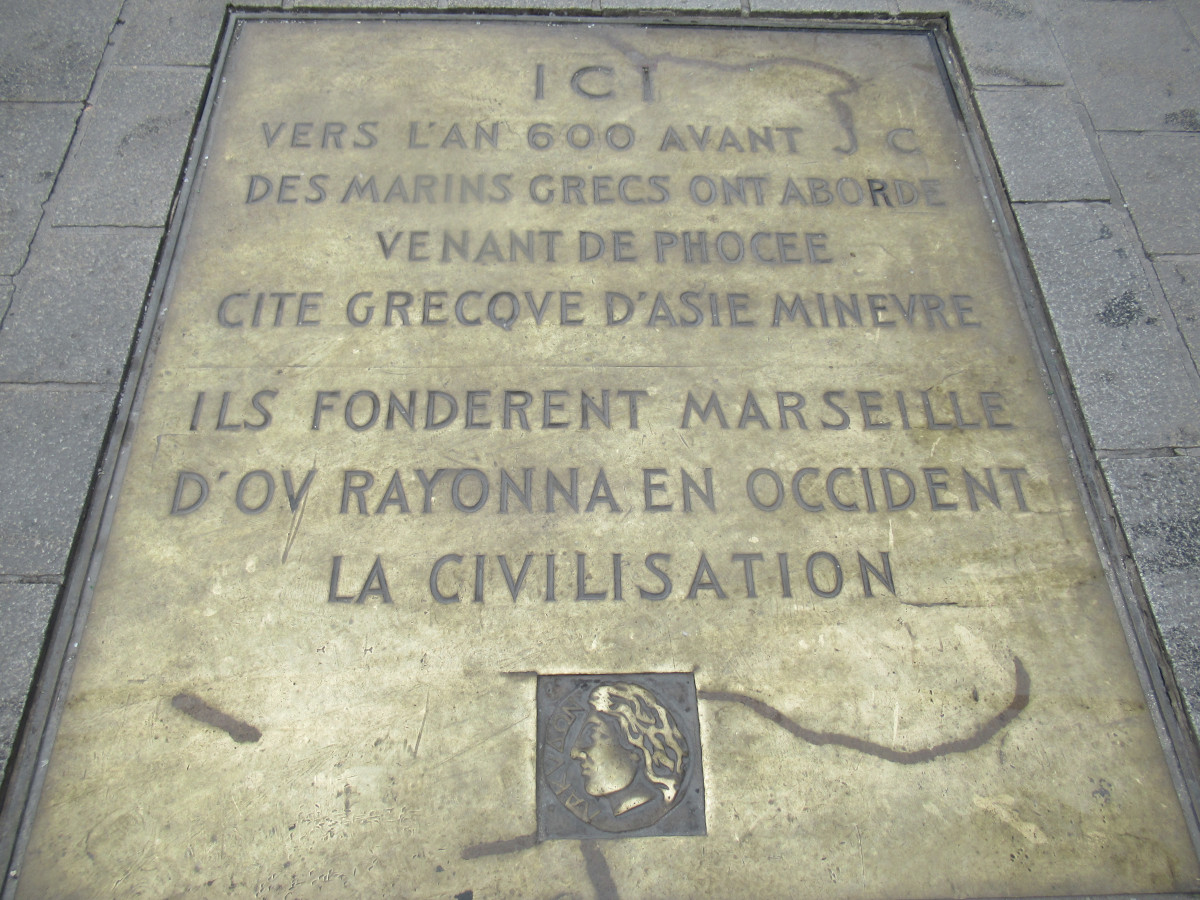
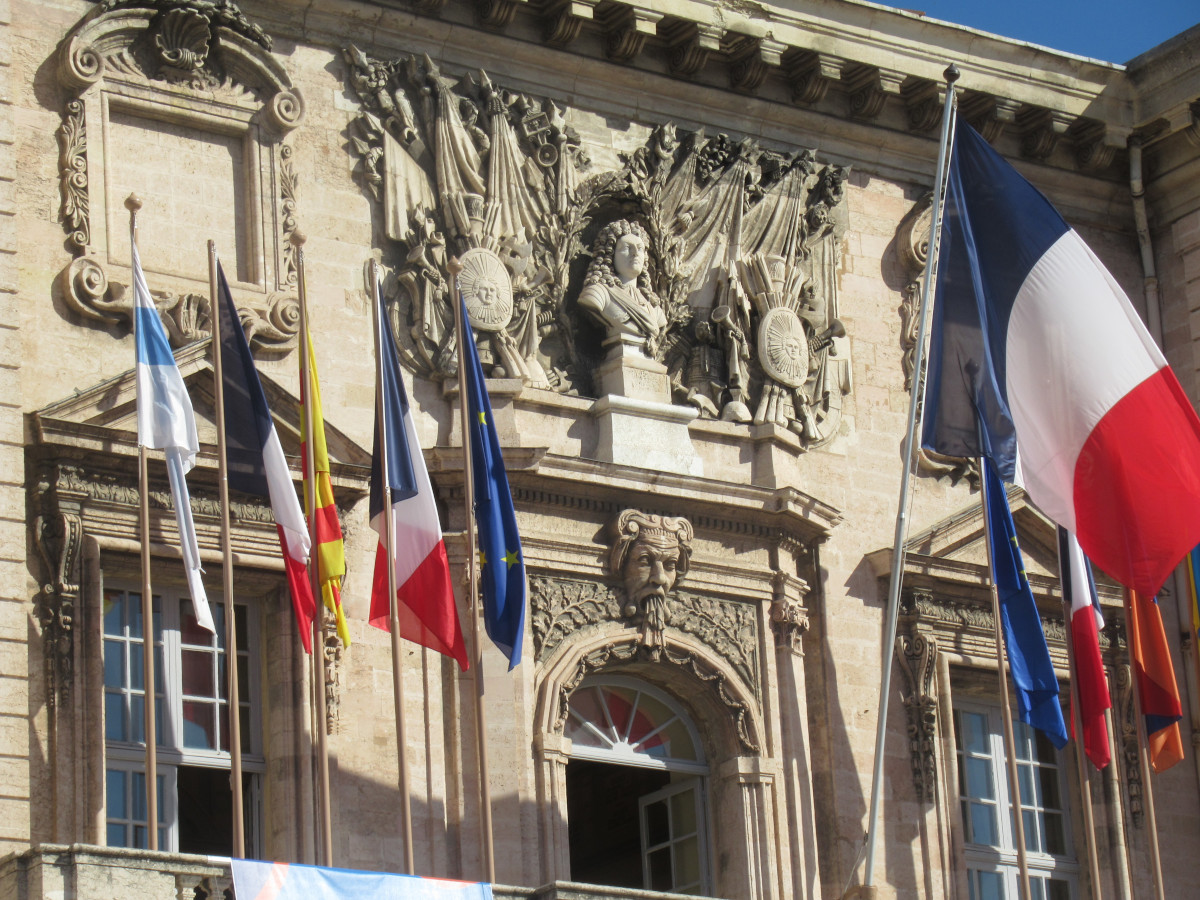
Marseille, the oldest city in France, was founded in 600 BC by Greeks from Phocaea who made it an important base as they moved up into what is now modern France. The Romans settled here too, and Christianity arrived in AD70. In the Middle Ages it became an important port, the departure point for crusaders and a city which traded with the Levant. Long independent, Marseille became part of France in 1481, but a number of kings found themselves having to subdue the city. Francis I built the Château d’If prison on an island just off the harbour and Louis XIV, equally determined to control the city, built the St Jean and St Nicolas forts to guard the harbour.
Disaster struck in 1729, when rats on a ship from Syria brought the plague which eventually killed about half the population. Local soldiers, marching on Paris during the revolution took the song which became the national anthem – la Marsellaise – with them. The revolution hit hard in the city and a guillotine was set up on la Canebière. Napoleon, keen to subdue the city, had it blockaded and it was not until the mid-19th century that prosperity returned. Trade flourished in Marseille, now known as the ‘Port of Empire’. Many of the city’s grandest buildings date from this period, including the Palais Longchamps (1840s), the Bourse (Customs House, 1850s) and Notre Dame de la Garde (begun in the 1850s, completed in 1897)
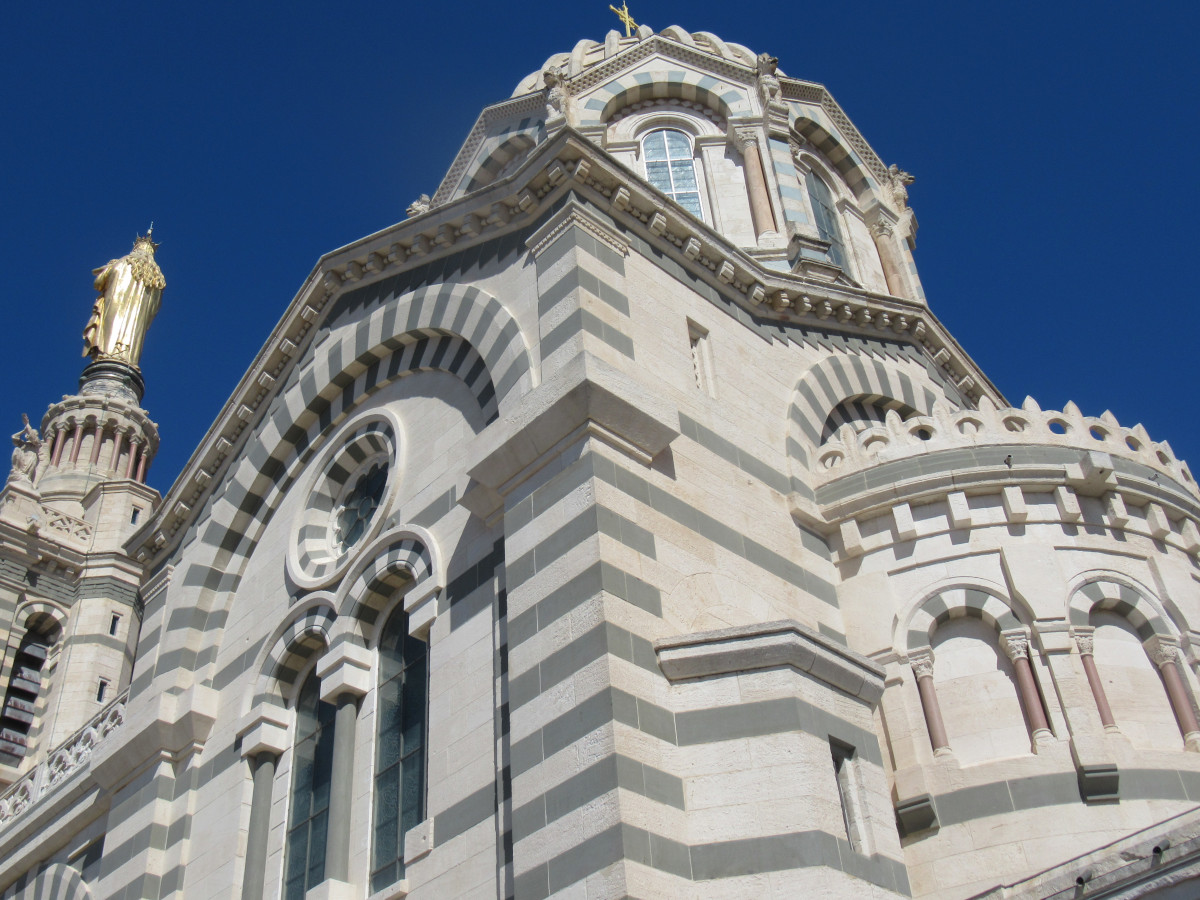
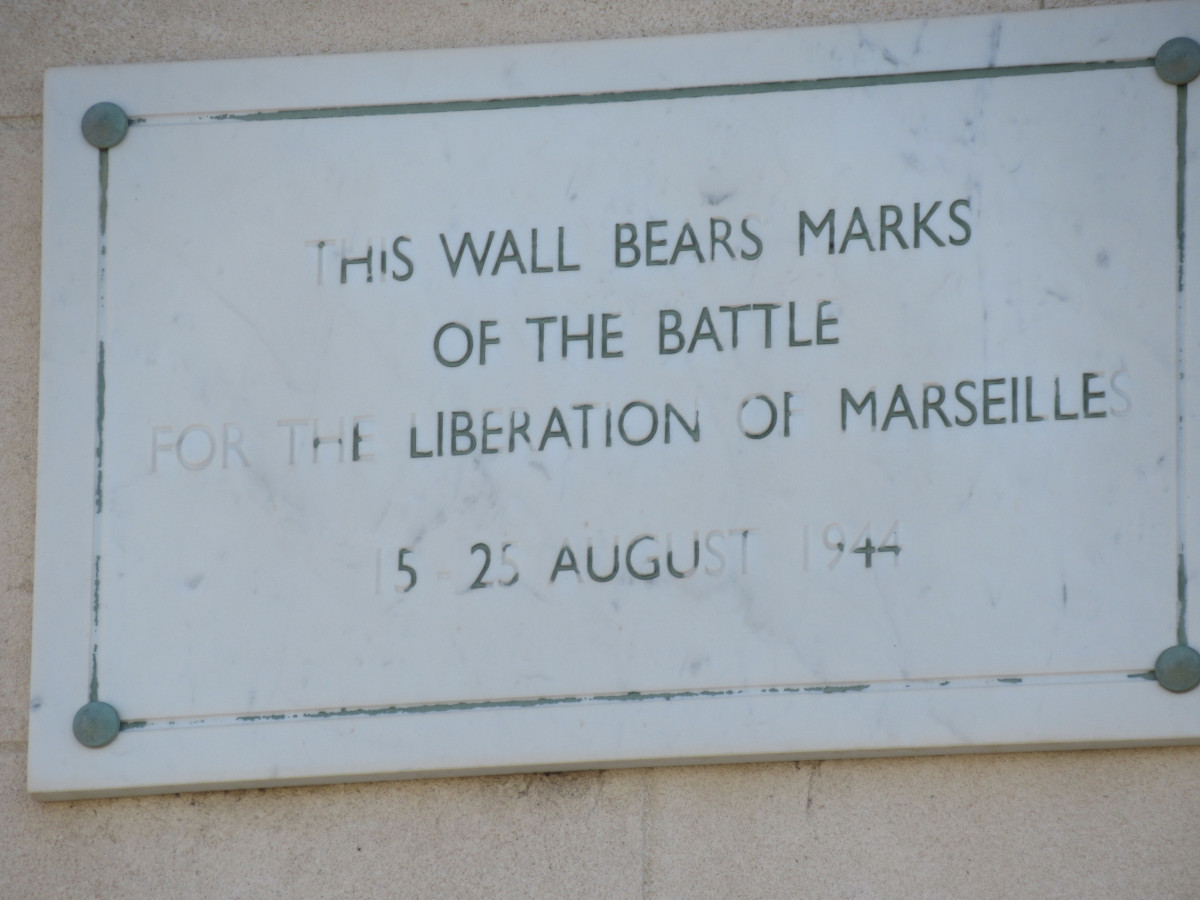
Marseille was occupied by the Germans during World War II and the Old Port and the Le Panier district were badly damaged in January 1943. There was fierce fighting around Notre Dame de la Garde during the liberation of the city in August 1944. A rebuilding programme followed, including the creation of a new port and the building of big new residential areas. The population grew fast and many immigrants arrived, especially in 1962 after Algeria became independent. In the early 2000s Marseille became a major Mediterranean centre, attracting new businesses and redeveloping its docklands under ‘Projet Europmediterrannée’. In 2013 came a further boost as it became the European Capital of Culture.

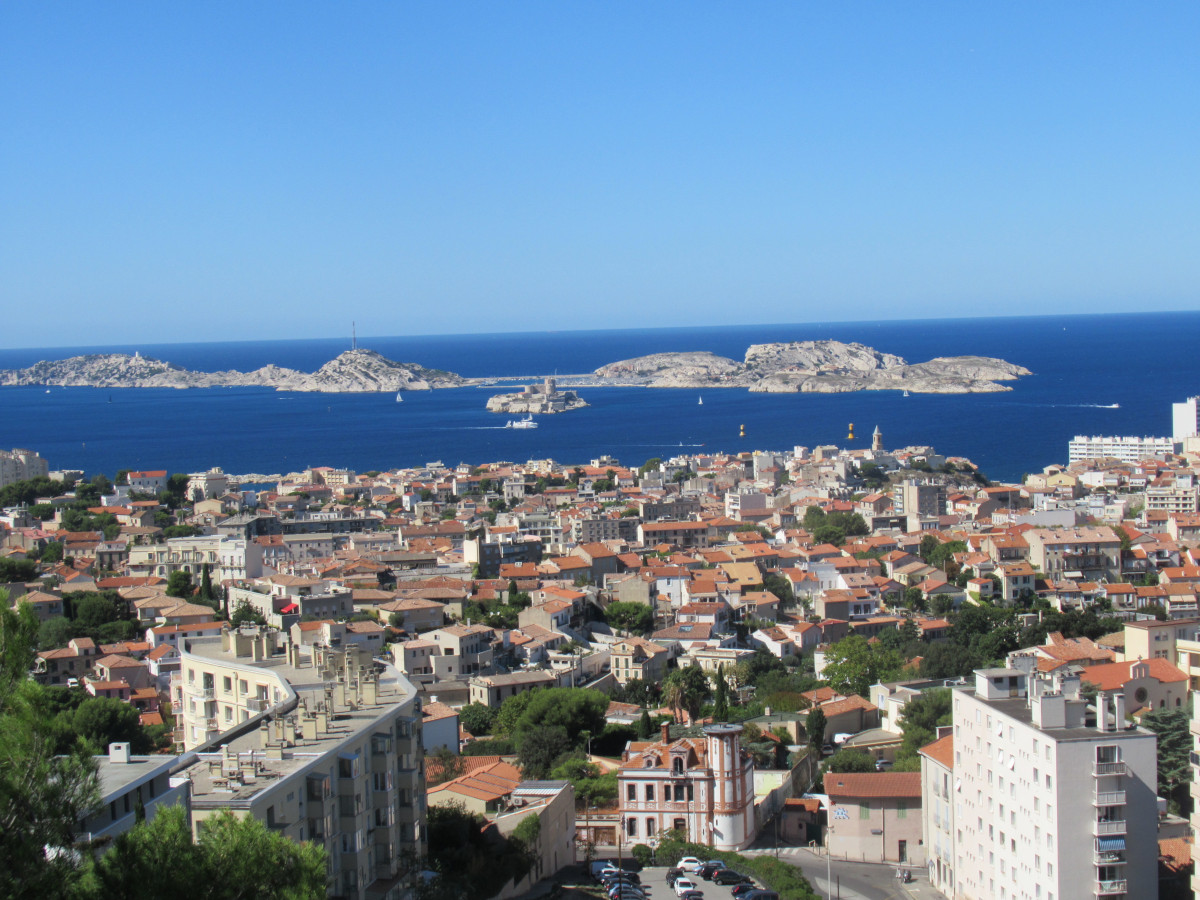
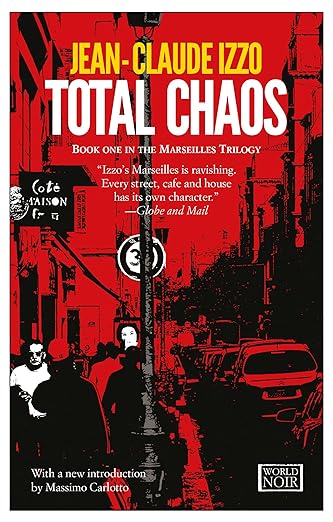
In the next post, we’ll be reviewing the history of Marseille through the places you can visit to learn all about it, from the harbour-side plaque commemorating the founding of the city to the various museums dedicated to telling the rest of the story. Meanwhile, we can recommend some useful links and staple guidebooks, plus a selection of books on the culture of the city and its surroundings. Also listed below is a selection of locally-based fiction, from the idyllic childhood reminiscences of Marcel Pagnol to the gritty back street scenes described by Jean-Claude Izzo and other Marseille Noir authors.
Listen to the podcast
OTHER posts in the marseille series
This is our current series. The list shows what posts are planned and as they are written, the titles will become links to take you straight there.
10 Places to find History in Marseille
The Old Port, the Canebière and Notre Dame de la Garde
The Le Panier district
La Joliette, the MUCEM and the Cosquer Museum
Art in Marseille
Boat Trips and Beaches
Food and Shopping
In the Footsteps of Marcel Pagnol
A Marseille Anthology
links and reading
Three useful websites for tourists
Marseille Tourist Office
Marseille Tourisme.fr
About France: a short guide to Marseille
3 Guide Books
The Rough Guide to Provence and the Côte d’Azur
Marseille Travel Guide by Angela J Rea
Marseille Travel Guide by Betty Vanslyke
4 books on Marseille Culture
The Wicked City The Many Cultures of Marseille by Nicholas Hewitt
Garlic, Mint and Sweet Basil by Jean-Claude Izzo
Unveiling Marseille Your Insider’s Guide to the Multicultural Marvel by Tailored Travel Guides
Taste the World in Marseille by Vérane Frédiani
Literature
Marcel Pagnol wrote a trilogy of plays set in the city: Marius, Fanny and César. All three were also filmed.
Try eBay or other second-hand sites to track them down. His two books of childhood memoirs centre on the Provençal countryside just a few miles outside Marseille.
Memoirs of a Provence Childhood by Marcel Pagnol
This comprises 2 autobiographical novels in one volume: My Father’s Glory and My Mother’s Castle
Marseille Noir
This is the collective name for gritty crime fiction set in Marseille. The best-known examples are the Jean-Claude Izzo trilogy
Total Chaos by Jean-Claude Izzo
Chourmo by Jean-Claude Izzo
Solea by Jean-Claude Izzo
The First Fingerprint by Xavier-Marie Bonnot
Marseille Noir by Cédric Fabre
More Fiction
The Count of Monte Cristo by Alexandre Dumas
The Marseille Caper by Peter Mayle
Last Updated on October 7, 2024 by Marian Jones
